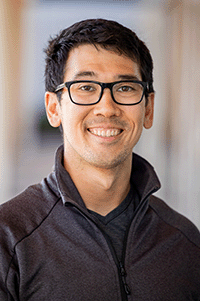A Systems-theoretic Viewpoint on Real-time Optimization for Model Predictive Control
Dear Members, Friends and Colleagues,
Please join us for the upcoming hybrid technical event in organization of the Control, Robotics and Systems Joint Chapter of IEEE Vancouver Section.

Intelligent systems are becoming increasingly prevalent in our society, e.g., self-driving cars are being developed on an industrial scale and smart grids are at the forefront of efforts to combat climate change. Model predictive control (MPC), a powerful optimization-based constrained control technique, is a key enabling technology for the next generation of intelligent systems. Often the most significant challenge when deploying model predictive controllers is solving complex trajectory optimization problems in real-time. It is often not possible to solve these problems to full optimality in practice due to computational limits, instead we resort to computationally cheaper suboptimal predictive control strategies. However, this potentially sacrifices some of MPC's stability and robustness guarantees. In this talk, I present Time-distributed Optimization (TDO), a unifying framework for studying the system theoretic consequences of computational limits in the context of Model Predictive Control (MPC). By framing suboptimal MPC as a feedback interconnection between the physical plant and an optimization algorithm, I derive sufficient conditions for stability and robustness of model predictive controllers under computing power and/or communication limits. Further, I illustrate the applicability of the these methods in the real-world through diesel engine, and autonomous driving examples.
Date and Time
Location
Hosts
Registration
-
 Add Event to Calendar
Add Event to Calendar
Loading virtual attendance info...
- University of British Columbia
- Vancouver , British Columbia
- Canada
- Contact Event Host
-
Dejan Kihas
kihas@ieee.org
Speakers
 Dominic Liao-McPherson of University of British Columbia, Department of Mechanical Engineering
Dominic Liao-McPherson of University of British Columbia, Department of Mechanical Engineering
A Systems-theoretic Viewpoint on Real-time Optimization for Model Predictive Control
Intelligent systems are becoming increasingly prevalent in our society, e.g., self-driving cars are being developed on an industrial scale and smart grids are at the forefront of efforts to combat climate change. Model predictive control (MPC), a powerful optimization-based constrained control technique, is a key enabling technology for the next generation of intelligent systems. Often the most significant challenge when deploying model predictive controllers is solving complex trajectory optimization problems in real-time. It is often not possible to solve these problems to full optimality in practice due to computational limits, instead we resort to computationally cheaper suboptimal predictive control strategies. However, this potentially sacrifices some of MPC's stability and robustness guarantees. In this talk, I present Time-distributed Optimization (TDO), a unifying framework for studying the system theoretic consequences of computational limits in the context of Model Predictive Control (MPC). By framing suboptimal MPC as a feedback interconnection between the physical plant and an optimization algorithm, I derive sufficient conditions for stability and robustness of model predictive controllers under computing power and/or communication limits. Further, I illustrate the applicability of the these methods in the real-world through diesel engine, and autonomous driving examples.
Biography:
Dominic Liao-McPherson recived his BASc in Engineering Science (AERO 1T4 + PEY) from the University of Toronto in 2015 and a PhD in Aerospace Engineering and Scientific Computing from the University of Michigan (Ann Arbor) in 2020. He was a postdoc at the ETH Zürich Automatic Control Lab (ifA) before joining UBC in 2023 as an Assistant Professor of Mechanical Engineering. My research interests lie at the intersection of optimization, control, and computing with applications in robotics, energy, and aerospace.
https://mech.ubc.ca/dominic-liao-mcpherson/
Email:
Address:University of British Columbia , Department of Mechanical Engineering , Vancouver , Canada, V6T 1Z4
Agenda
The event takes place on Wednesday Feb 14th from 5:30pm to 7:00pm.
5:30pm Start
- Gathering
- Introduction
5:40pm
- Talk
- Discussion
7:00PM End
Speaker: Dominic
Moderator: Dejan
The event takes place on Wednesday Feb 14th from 5:30pm to 7:00pm

